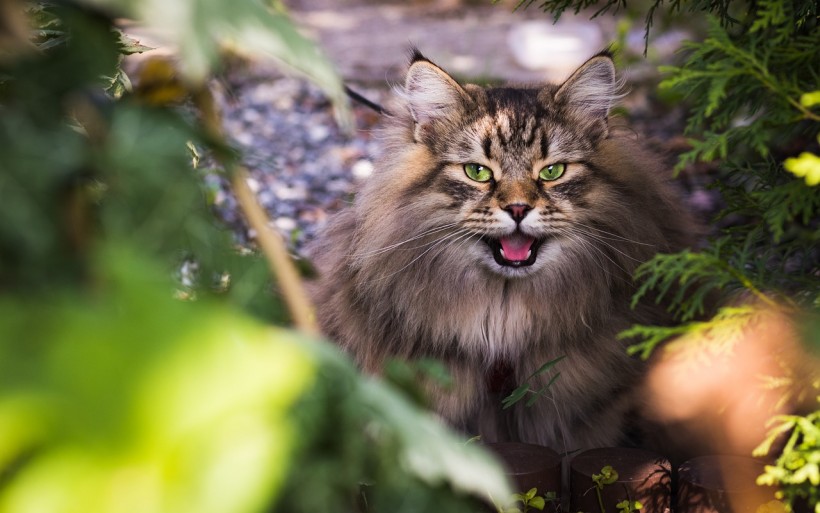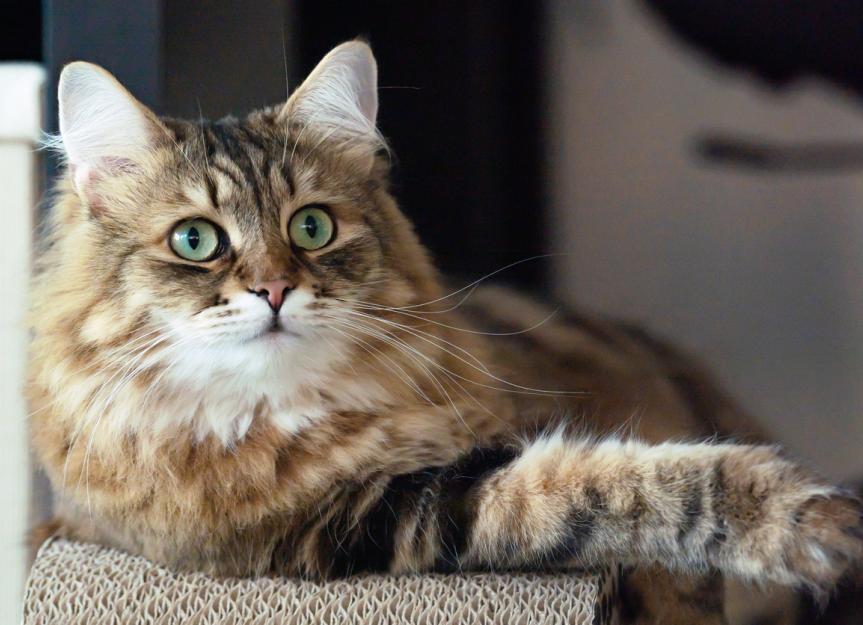When considering a feline companion, longevity is often a key factor for pet owners. Siberian cats, with their stunning appearance and playful nature, have captured the hearts of many cat enthusiasts around the globe. But how long do these enchanting cats typically live?
In this article, we will explore the life expectancy of Siberian cats, delving into the factors that contribute to their impressive resilience and vigor. Drawing on their rich heritage, we’ll uncover the traits that make these furry friends not only delightful companions but also remarkable survivors. Join us as we celebrate the Siberian cat’s hardy lineage and the secrets behind their remarkable lifespan!
Table of Contents
- Understanding the Lifespan of Siberian Cats
- Exploring the Resilient Genetics Behind Their Longevity
- Essential Care Tips for Promoting a Healthy Life
- Creating a Nurturing Environment for Your Siberian Companion
- Q&A
- The Way Forward

Understanding the Lifespan of Siberian Cats
Siberian cats are known for their robust nature and adaptability, resulting in a lifespan that often exceeds the average for domestic cats. On average, these feline companions can live anywhere from 12 to 15 years, with some even reaching up to 20 years with proper care. Their hardy ancestry, rooted in the harsh climates of Siberia, has equipped them with resilience and a strong immune system, which contributes to their longevity. This breed is generally healthy; however, they may be predisposed to certain genetic conditions, which emphasizes the importance of regular veterinary check-ups to ensure a long and healthy life.
Nutrition and a balanced diet play a significant role in enhancing the lifespan of Siberian cats. Here are some crucial elements to consider:
High-Quality Protein: Essential for muscle development and overall health.
Omega Fatty Acids: Support skin and coat health, which is vital for their thick fur.
Hydration: Ensure they have access to fresh water to prevent urinary issues.
Regular Exercise: Keeps them fit and mentally stimulated.
By addressing their dietary needs and providing a loving environment, you can help your Siberian cat thrive into its golden years.
Exploring the Resilient Genetics Behind Their Longevity
The Siberian cat is not just a strikingly beautiful breed; it boasts a fascinating genetic heritage that contributes to its remarkable longevity. Originating from the harsh climates of Siberia, these felines possess a robust genetic makeup that has evolved over centuries, allowing them to thrive in conditions that would challenge many other breeds. Their resilience can be attributed to several factors, including:
Natural Selection: Survival in extreme temperatures has honed their physical and immune systems.
Diverse Gene Pool: Crossbreeding with local wildcats has enriched their genetics, enhancing their adaptability.
Low Incident of Genetic Disorders: Siberians typically face fewer hereditary issues, promoting a longer lifespan.
Another intriguing aspect of their genetics is their thick, water-repellent coat, which not only keeps them warm but also protects against parasites and harsh weather, further contributing to their overall health. Studies have shown that Siberian cats can live well into their teens, often reaching ages of 15 years or more. The following table illustrates the average lifespan compared to other popular breeds:
| Cat Breed | Average Lifespan |
|---|---|
| Siberian | 15-20 years |
| Maine Coon | 12-15 years |
| Persian | 12-17 years |
| Bengal | 12-16 years |
Essential Care Tips for Promoting a Healthy Life
Ensuring a long and healthy life for your Siberian cat involves a combination of proper care, nutritious diet, and regular veterinary visits. These furry companions are known for their resilience, but they still require attention to their physical and mental well-being. Here are a few essential care tips:
Diet: Provide high-quality cat food that meets their nutritional needs, focusing on a balanced diet rich in protein.
Exercise: Engage your Siberian in daily playtime to keep them physically active and mentally stimulated.
Grooming: Regular grooming not only helps to manage their thick fur but also reduces the risk of matting and hairballs.
Health Check-ups: Schedule annual vet visits to monitor their health, vaccination status, and preventive care.
Aside from these basic tips, creating a safe and loving environment will also contribute to their well-being. Siberians thrive on social interaction and mental challenges, so consider incorporating engaging toys or puzzle feeders. Additionally, keeping their living space clean and providing a cozy resting area will enhance their comfort. Below is a quick overview of their lifestyle needs:
| Needs | Recommendations |
|---|---|
| Socialization | Regular interaction with family members |
| Nutrition | High-quality cat food with protein |
| Activity | Daily playtime and exercise |
| Healthcare | Annual vet check-ups |
Creating a Nurturing Environment for Your Siberian Companion
Creating a nurturing environment for your Siberian cat is essential to ensuring their physical and emotional well-being. These cats thrive in spaces that allow them to explore, play, and relax. To achieve this, consider the following key elements:
Safe Play Areas: Provide ample space for your cat to roam and play. Cat trees, scratching posts, and interactive toys can stimulate their natural instincts.
Comfortable Retreats: Designate cozy spots around your home where your Siberian can curl up and feel secure. Soft bedding in quiet corners and cat igloos make great hideaways.
Social Interaction: Siberians are known for their sociable nature. Spend quality time engaging in play and bonding through petting or brushing sessions.
Environmental Enrichment: Keep their minds active by rotating toys, introducing puzzle feeders, and providing access to window perches for watching the world outside.
A well-designed living area that caters to your Siberian’s needs will significantly enhance their quality of life. Consider incorporating elements of nature to create a more stimulating environment. For instance, adding indoor plants that are safe for cats can offer a touch of greenery. Here’s a simple guideline:
| Plant | Cat-Safe? |
|---|---|
| Spider Plant | Yes |
| Bamboo Palm | Yes |
| Boston Fern | Yes |
| Aloe Vera | No |
Remember, maintaining a balance between enrichment and safety is key. By regularly assessing your cat’s environment and making adjustments, you can provide a harmonious and loving sanctuary for your cherished Siberian companion.
Q&A
Q: What is the average lifespan of a Siberian cat?
A: Siberian cats typically have a lifespan of 12 to 15 years, though some can live into their late teens with proper care. Their hardy nature contributes to their longevity.
Q: What factors influence the lifespan of a Siberian cat?
A: Several factors can influence how long a Siberian cat lives, including genetics, diet, exercise, and overall health. Regular veterinary check-ups, a balanced diet, and a stimulating environment play crucial roles in promoting their well-being.
Q: Are Siberian cats prone to any specific health issues?
A: While Siberians are generally healthy, they can be prone to certain genetic conditions such as hypertrophic cardiomyopathy (HCM), a heart disease. Regular screenings and a healthy lifestyle can help manage these risks.
Q: How can I ensure my Siberian cat lives a long and healthy life?
A: To promote longevity in your Siberian cat, provide them with a nutritious diet, regular exercise, and mental stimulation. Ensure they receive routine veterinary care, including vaccinations and check-ups, and keep them indoors or in a safe outdoor environment to protect them from accidents and diseases.
Q: Do Siberian cats have any special dietary needs?
A: Siberian cats do not have dramatically different dietary needs compared to other breeds, but they benefit from a high-protein, low-carbohydrate diet. Quality cat food that meets their nutritional needs, along with fresh water, can help maintain their health and energy levels.
Q: How do Siberian cats compare to other breeds in terms of lifespan?
A: Compared to many other breeds, Siberian cats enjoy a relatively long lifespan. While some breeds may have shorter lifespans due to genetic predispositions, the Siberian’s robust heritage generally lends them greater resilience and longevity.
Q: Can environmental factors affect a Siberian cat’s lifespan?
A: Yes, environmental factors play a significant role in a Siberian cat’s lifespan. A safe, stress-free home environment, protection from hazards, and mental and physical enrichment can help reduce risks and promote a healthy lifestyle.
Q: What is the heritage of Siberian cats, and how does it contribute to their health?
A: Siberian cats have a rich heritage rooted in the cold, rugged regions of Siberia. Their natural selection in harsh climates led to the development of a robust body, thick fur, and strong immune systems, contributing to their overall health and longevity.
Q: Are there any myths about Siberian cats and their lifespan?
A: One common myth is that Siberian cats are excessively fragile due to their long fur. In reality, their thick coats are a testament to their hardy nature, and they are quite resilient. It’s important not to underestimate their strength and adaptability!
Q: What should I do if my Siberian cat shows signs of health issues?
A: If you notice any changes in your Siberian cat’s behavior, appetite, or activity levels, or if they display unusual symptoms, it’s crucial to consult your veterinarian. Early detection and treatment can greatly improve their prognosis and quality of life.
By understanding their heritage and providing the right care, you can help your Siberian cat thrive and enjoy a long, happy life alongside you!
The Way Forward
Siberian cats are not just beautiful companions; they are also resilient and hardy creatures with a legacy that contributes to their impressive lifespan. By understanding their unique genetics and care needs, pet owners can help ensure that their Siberian friends live long, healthy lives. Regular veterinary check-ups, a balanced diet, and plenty of exercise are key to nurturing their wellbeing. As you embark on this rewarding journey with your Siberian cat, remember that the love and attention you provide will go a long way in enhancing their quality of life. We hope this article has shed some light on the fascinating world of Siberian cats and inspired you to cherish your feline’s rich heritage. Here’s to many happy years with your furry companion!


